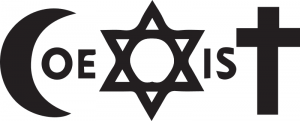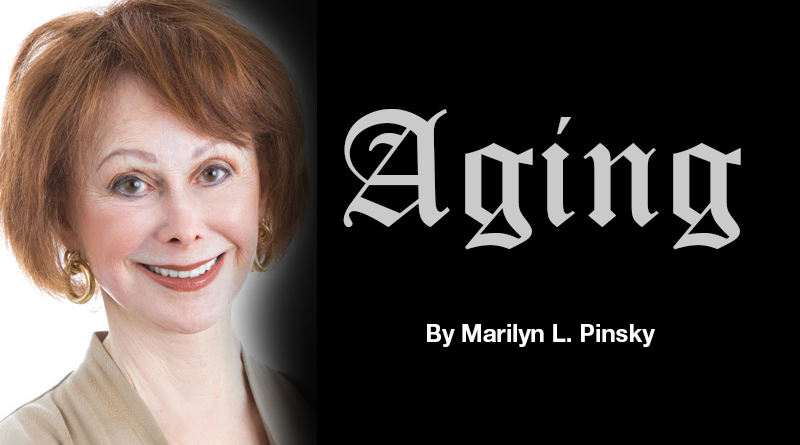Lesson in Co-Existence
Syracuse Area Middle East Dialogue group, SAMED, has fostered dialogue for 37 years
By Marilyn L. Pinsky
 In this present day world where conversations with people we don’t see eye to eye with have become difficult and stressful, it is amazing that a group has been together for 37 years meeting around an issue close to their individual hearts and among the most difficult of subjects, Israel and Palestine.
In this present day world where conversations with people we don’t see eye to eye with have become difficult and stressful, it is amazing that a group has been together for 37 years meeting around an issue close to their individual hearts and among the most difficult of subjects, Israel and Palestine.
Their continued existence as a group is a lesson for us all as we search for a better way to co-exist.
Today’s reality is that the United States has always been a diverse country and we live in a global society. While people from other countries have chosen to move here and become loyal United States citizens, their hearts have also been with parents, siblings or relatives who still lived in other parts of the world, including the Middle East. One does not just move to another country and forget their heritage, and often that heritage is one of pain.
Syracuse Area Middle East Dialogue group, SAMED started meeting in 1981. Organizationally, SAMED has limited membership to insure balanced representation of the three constituent groups: Jewish Americans, Arab/Palestinian Americans and other Americans who are not Jewish nor Arab/Palestinian.
Anis Obeid, a beloved cardiologist in Syracuse, and a long time SAMED steering committee member, describes the group this way: “SAMED, is a model of how we can have intensely strong feelings based on heritage, religion and historical background, but still have our hearts and minds open to hear the pain of others.”
When asked ‘how has the world changed since SAMED started, a founding member, Louis Kriesberg, Syracuse University professor emeritus of sociology, said, “There has been great progress and great setbacks. At the outset, the idea of Israeli-Palestinian peace in the form of two states seemed unrealizable and widely undesired. But when the Oslo Peace Accord was signed in D.C., in 1993, we saw a change and felt we had contributed to that change in our local communities. We spoke of declaring victory and having dinner and dissolving. But we knew realizing peace would prove difficult and our work should continue, and also we wanted to hang out with each other. Matters did not go well, but a Palestine authority was established and survives. The world context has radically changed, with the end of the Cold War, the appearance of large-scale terror attacks, major enduring U.S. military engagement in the Middle East, the Arab Spring, etc.”
“Though difficult to understand,” Kriesberg continued, “it is important to know that the Israeli-Jewish relationship with Palestinians is not to be defined only as a religious conflict; the communities are ethnic or nationality-based.”
Present Chairman Mark Field explains that “through the dialogue process we build friendship, trust and understanding. We support a resolution to the Israel/ Palestinian conflict that is just and acknowledges the national aspirations of both peoples in the region. We seek to help our community understand the conflict from a broader perspective and we try to encourage our elected representatives to use American influence to help bring about a fair resolution to the conflict in an unbiased way.”
As a decade long community member and past SAMED chairman, Paul Welch, who is from the other Americans category, said, “I find people in SAMED I would not normally connect with. There are people from Egypt, Lebanon and, of course, Palestine who may be Muslim, Druze or Christian Orthodox. Jewish members are from different congregations and from no institutional affiliation. The common denominator for community people is a concern for the intense suffering involved in the conflict. Years of tears and frustrated hopes yield one great lesson — somehow people in both camps must see each other as children of divine love.”
“And,” he went on, “the Second Intifada sowed horrible hatreds. The building of the wall and the military occupation increases that hatred. We Americans hold the key to alleviating the suffering of millions of people caught between the cries of ‘death to Israel’ and ‘drive the Palestinians from Samaria and Judea.’ However, it means America seeing both peoples as children of God.”
Because the situation is so fluid, and because the U.S. is such a major international player, the group regularly discusses, analyzes and develops consensus views on U.S. policy relating to the Middle East as issues arise. It is not easy and it is often painful. “Though coming to consensus is a goal,” Kriesberg said, “sometimes we do it easily and sometimes we fail.”
Developing that statement begins with general discussion at a meeting, or more than one meeting. With some parameters agreed upon, two or three members draft a statement that is then discussed and ultimately voted on, and with the overwhelming agreement of all three constituent groups, the statement can be made public. This is done through letters to the editor, meetings with elected federal officials, and presentations in public forums.”
Meetings rotate among member homes and that gives another level of intimacy, to be invited into someone’s home and meet whatever family might be there at the time. A typical meeting starts with a few minutes of personal catching up — who visited their children for the holidays, who took trips to see family or for work, and news about members who have moved away. For example, at long-time member Elaine Rubenstein’s home, this included signing a birthday card for Judge Minna Buck, one of the SAMED founders, who had moved to Denver.
A few minutes are spent on administrative issues, such as scheduling meetings with the Congressional candidates, and then the hard work begins: expressing feelings about the issues, trying to come to consensus and then deciding how to get the messages to the right people.
Without going into detail, I will mention some of the issues that have been discussed recently by SAMED: changes in the Israeli political structure, how other countries are handling refugees, the status of people in Gaza vs. the Palestinians in Jordan, the right of return vs. compensation, refugees in and from Syria, the settlements, impact of moving the US embassy and how that affects future negotiations.
How has SAMED survived through 37 difficult years? It may be just as simple as getting to know each other as fellow human beings. They listen without interrupting and accept each person’s narrative as being as valid as their own. Kriesberg says, “For me, it staves off despair and feelings of helplessness. It feels hopeful that there are people from many different sides who share my wish for peace, reconciliation, justice, and mutual well-being.”
But most important, SAMED is a reflection of what can be done when people of good will, without political, religious or financial agendas, want to have peace. And that is a major role of SAMED to model this type of decision-making.
Members are available to speak to groups and welcome the opportunity.

